Caterers and their clients specify their agreements and engagements using a catering contract template. This contract documents the terms and conditions of the catering services that will provide for an event.
Table of Contents
What is a catering contract?
A catering contract is a formal agreement between the caterer and the client that specifies all the terms and conditions of the catering services and the types of food and refreshments that will provide on a specific date.
Furthermore, a well-drafted catering contract makes sure that an event runs smoothly. This document is like a business form that removes misunderstandings between the two parties.
Different types of catering services:
The clients may need to hire different types of catering services on the basis of the type of event they are going to organize. Let us discuss the most common ones;
Corporate Catering
Corporate Catering is required in staff events or business and corporate functions where caterers provide food and beverages. It may include the following events;
- Luncheons
- Upscale dinners
- Conferences board meetings
- Product launches
Wedding Catering
In wedding catering, caterers are responsible for the decor, food presentation, table arrangements, and wedding themes.
Social event gathering
This type of catering service includes the following events;
- Parties
- Buffets
- Outdoor BBQs
- Brunches
Concession catering
It may include the following events;
- Sporting competitions
- Live concerts
- Large conferences
What terms and conditions to include in a catering contract?
Include the following important terms and conditions in a catering contract;
- Name and contact details of involved parties
- Menu and food to be served
- Food substitutions and alternates
- Type of food service provided
- Leftover food and beverages
- Staffing requirements
- Additional items and services
- Fees and payment schedule
- Insurance and liabilities
- Health and safety requirements
- Cancellation policy
- Breach of contract terms
Child Care Food Program (CCFP) Standard Catering Contract Template
Full Service Catering Contract Template
Standard Catering Contract Template
Off-Site Catering Contract Template
Free Catering Service Agreement Template
Madd Chefs Catering Contract Template
Special Event Contract Template
Kenji’s Food Truck Catering Contract Template
One-Time Event Catering Agreement Template
Regent University Catering Agreement Template
Writing a catering contract:
An important part of any successful catering project is to create a contract. A lot of key details should be included in a contract to make it legally binding and to make sure it holds up in court. In addition, both parties avoid future misunderstandings and conflicts when the contract includes all the necessary information.
You can’t have to pay a lawyer for creating this agreement. It is relatively a straightforward document that you can create online. But, the agreement may cause issues between both sides if it’s not written properly.
Why should caterers create a catering contract?
Catering and event planning are considered time-sensitive businesses. They both depend on contractors and employees as they have to execute their clients’ vision. Thus, to make the catering project a success, a lot of planning and collaboration with third parties is required.
This contract makes sure that caterers get paid for their services timely. This way, they can pay for any expenses required for the event. Without a catering contract, the parties may have to face the following consequences;
- Payments can be missed
- Deadlines may not be met
- Clients could walk away
- Clients get disappointed by the overall experience
Faqs (Frequently Asked Questions)
A client who wants to hire a caterer to provide food for an event can use a catering contract. Fundraisers and wedding planning can use this contract to organize events. In fact, any individual or organization can use this document who wants to plan an event of any kind.
You can terminate a catering agreement in the following situations;
1- When the work is completed
2- A party breaches the conditions
3- All parties agree to terminate the contract

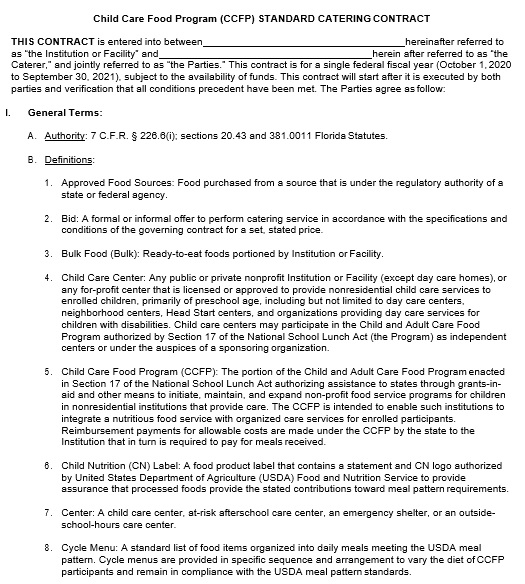
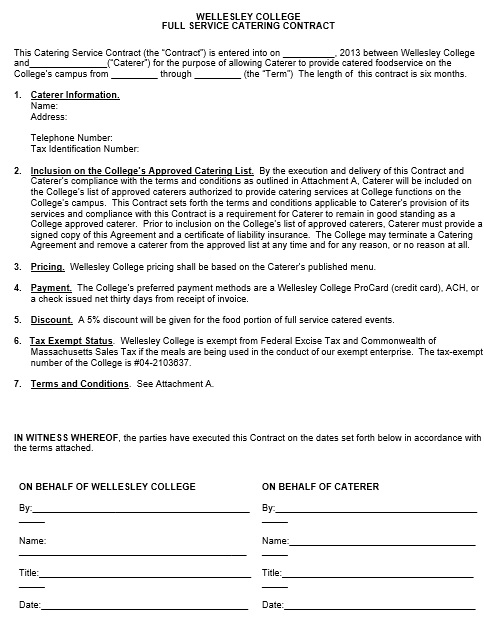
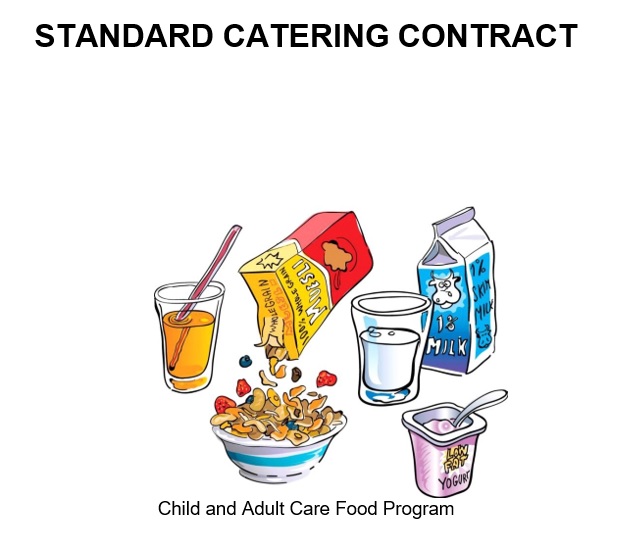
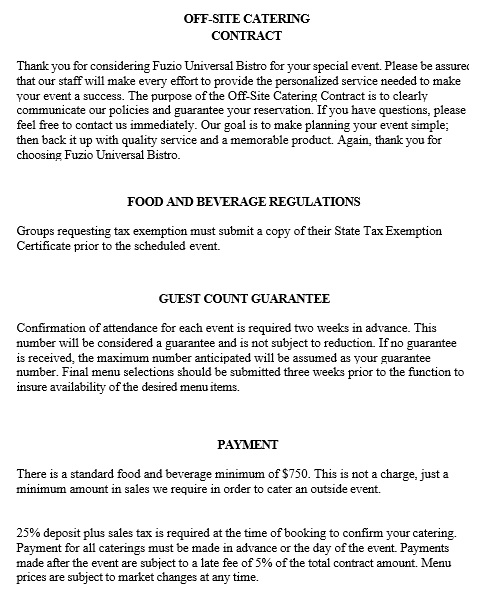
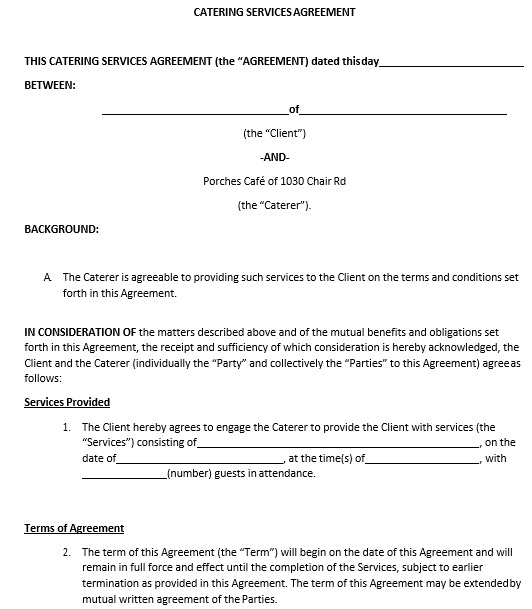
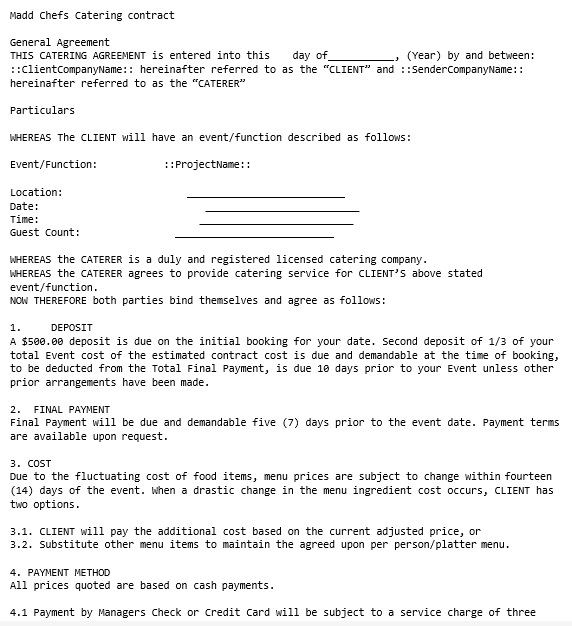
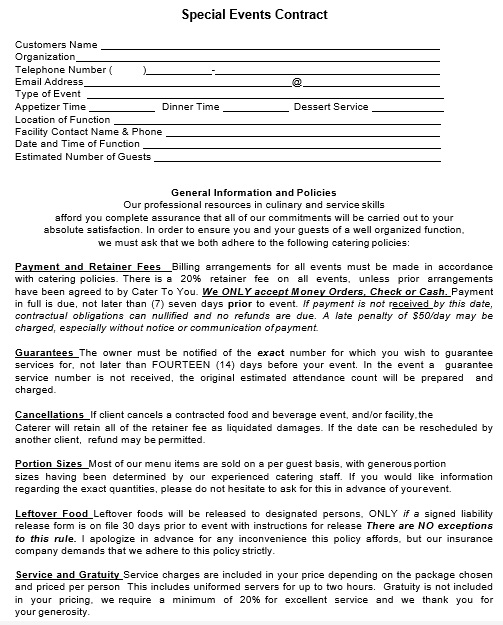
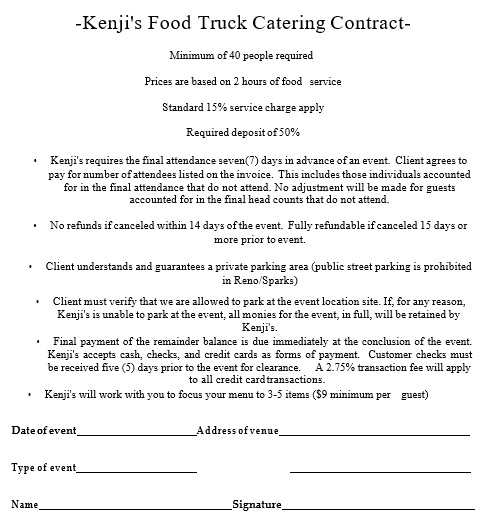
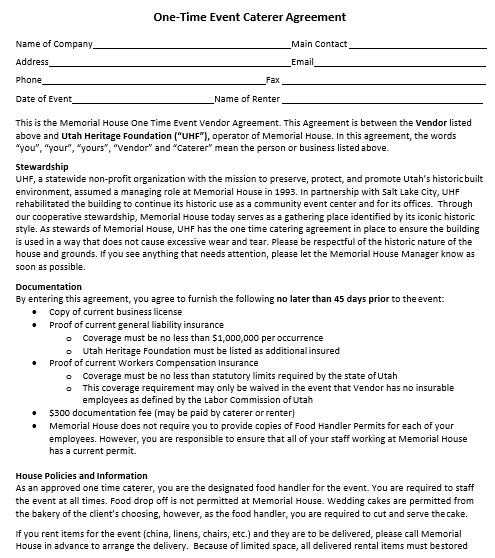
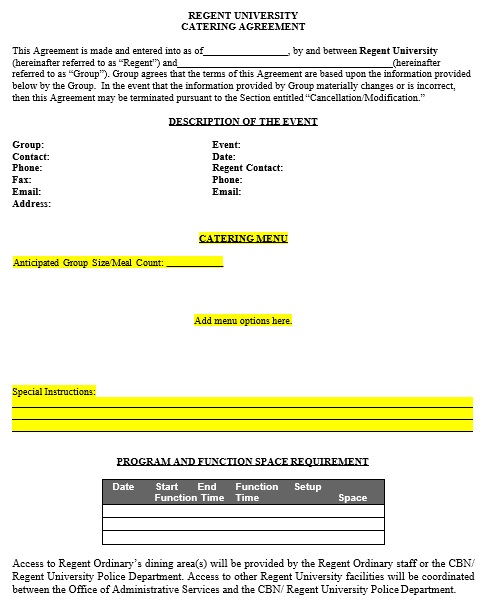



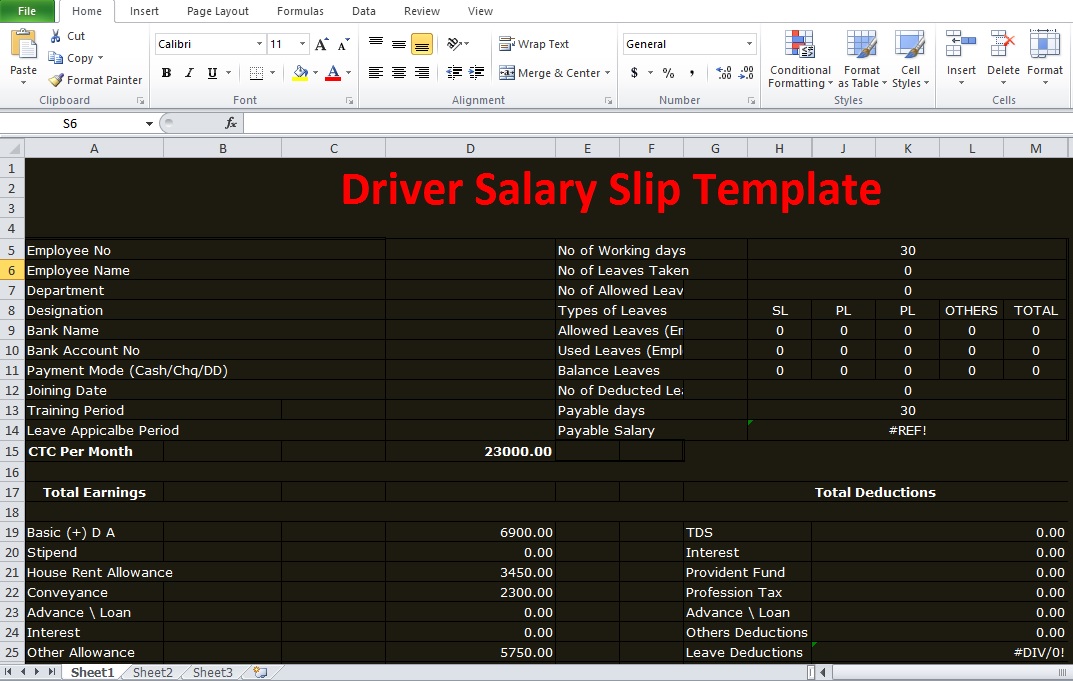

![Free Employment Separation Agreement Template [Word, PDF]](https://exceltmp.com/wp-content/uploads/2021/08/free-printable-employment-separation-agreement-template-150x150.jpg)